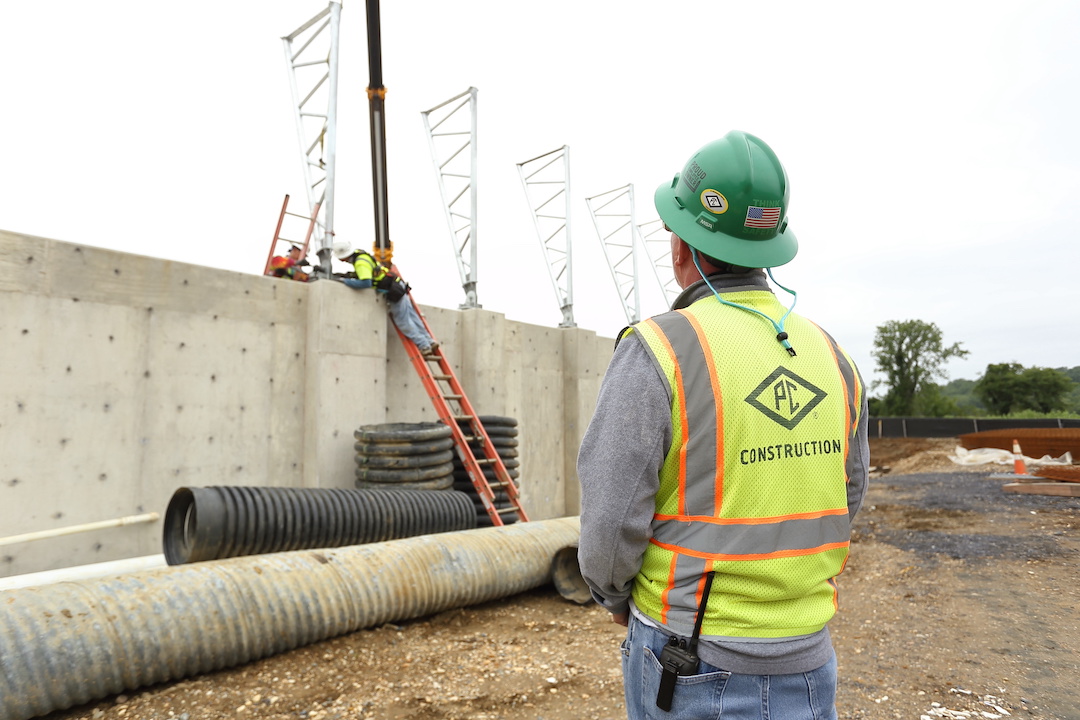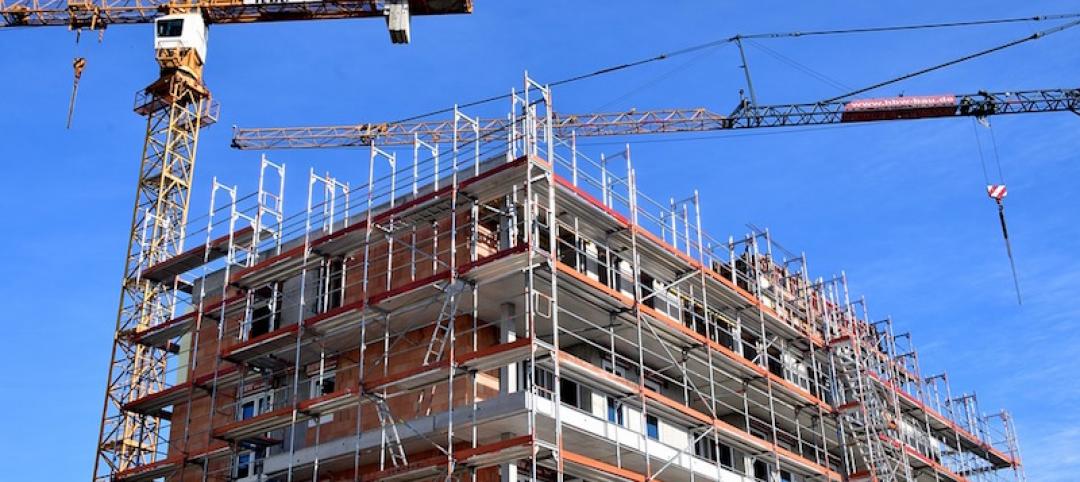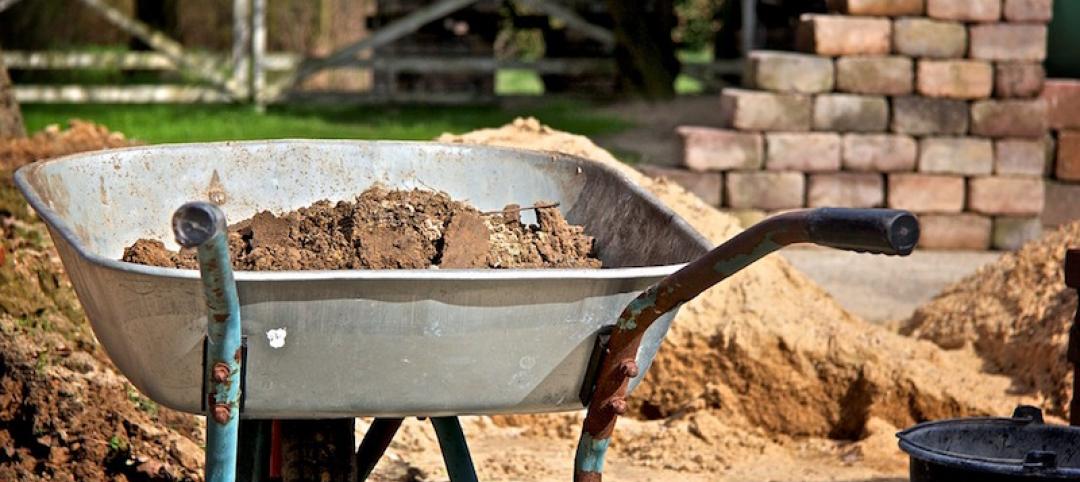The construction industry added 44,000 jobs between September and October as nonresidential construction firms posted back-to-back increases for the first time since January, according to an analysis by the Associated General Contractors of America of government data released today. Association officials said the employment gains were welcome news but cautioned that employment levels remain well-below pre-pandemic totals as firms struggle with supply chain problems, labor shortages and federal inaction on infrastructure funding.
“It is encouraging to see continuing job growth in nonresidential construction but the industry remains far behind the overall economy in recovering all of the job losses from the pandemic,” said Ken Simonson, the association’s chief economist. “Finding workers is a challenge after other sectors have hiring for much longer.”
Construction employment in October totaled 7,498,000, an increase of 44,000 since September. However, industry employment remained 150,000 below the pre-pandemic peak set in February 2020.
The nonresidential segment, comprising nonresidential building and specialty trade contractors plus heavy and civil engineering construction firms, added 33,000 employees in October, following a pickup of 25,800 in September. But nonresidential employment is 239,000 below the February 2020 level, as the sector has recovered only 63% of the jobs lost in the first two months of the pandemic.
Residential construction--including building contractors such as homebuilders, along with residential specialty trades--added 10,900 employees in October. Residential employment tops the February 2020 mark by 89,000. Simonson noted that the overall economy has regained 87% of the jobs lost between February and April 2020, an indication that many construction workers may have found jobs in homebuilding and remodeling or in other sectors.
Association officials urged members of the House of Representatives to quickly pass a federal infrastructure bill that received broad, bipartisan support in the Senate. They noted the new investments would help boost employment levels and improve overburdened distribution networks that are contributing to the supply chain problems. They also warned that new federal COVID vaccine mandates were likely to make it harder for firms that employ 100 or more people to retain and find new workers as the vaccine hesitant shift to smaller firms.
“House members should heed the lessons from this Tuesday’s elections and focus on passing bipartisan measures that will do much to boost our economy and improve supply chains,” said Stephen E. Sandherr, the association’s chief executive officer. “At the same time, we need to appreciate that having conflicting vaccine mandates for different types of firms is likely going to encourage the vaccine hesitant to work at places where the rules do not apply.”
Related Stories
Market Data | May 2, 2018
Construction employment increases in 245 metro areas between March 2017 & 2018, as trade fights & infrastructure funding shortfalls loom
Houston-The Woodlands-Sugar Land, Texas and Weirton-Steubenville, W.Va.-Ohio experience largest year-over-year gains; Baton Rouge, La. and Auburn-Opelika, Ala. have biggest annual declines.
Market Data | May 2, 2018
Nonresidential Construction down in March, private sector falters, public sector unchanged
February’s spending estimate was revised roughly $10 billion higher.
Market Data | Apr 30, 2018
Outlook mixed for renewable energy installations in Middle East and Africa region
Several major MEA countries are actively supporting the growth of renewable energy.
Market Data | Apr 12, 2018
Construction costs climb in March as wide range of input costs jump
Association officials urge Trump administration, congress to fund infrastructure adequately as better way to stimulate demand than tariffs that impose steep costs on contractors and project owners.
Market Data | Apr 9, 2018
Construction employers add 228,000 jobs over the year despite dip in March
Average hourly earnings increase to $29.43 in construction, topping private sector by nearly 10%; Association officials urge updating and better funding programs to train workers for construction jobs.
Market Data | Apr 4, 2018
Construction employment increases in 257 metro areas between February 2017 & 2018 as construction firms continue to expand amid strong demand
Riverside-San Bernardino-Ontario, Calif. and Merced, Calif. experience largest year-over-year gains; Baton Rouge, La. and Auburn-Opelika, Ala. have biggest annual declines in construction employment.
Market Data | Apr 2, 2018
Construction spending in February inches up from January
Association officials urge federal, state and local officials to work quickly to put recently enacted funding increases to work to improve aging and over-burdened infrastructure, offset public-sector spending drops.
Market Data | Mar 29, 2018
AIA and the University of Minnesota partner to develop Guides for Equitable Practice
The Guides for Equitable Practice will be developed and implemented in three phase.
Market Data | Mar 22, 2018
Architecture billings continue to hold positive in 2018
Billings particularly strong at firms in the West and Midwest regions.
Market Data | Mar 21, 2018
Construction employment increases in 248 metro areas as new metal tariffs threaten future sector job gains
Riverside-San Bernardino-Ontario, Calif., and Merced, Calif., experience largest year-over-year gains; Baton Rouge, La., and Auburn-Opelika, Ala., have biggest annual declines in construction employment.

















